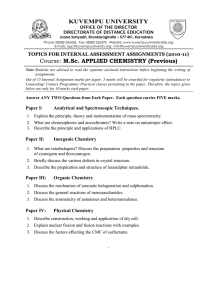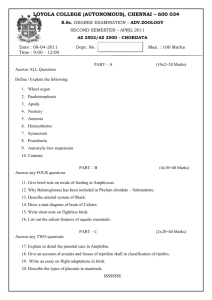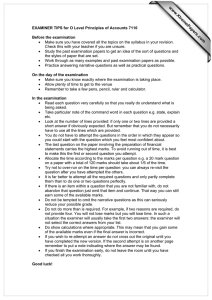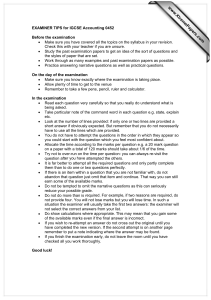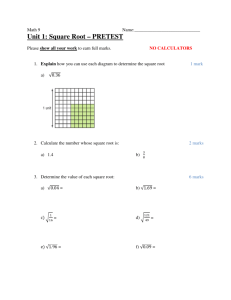PHYSICAL SCIENCES
advertisement
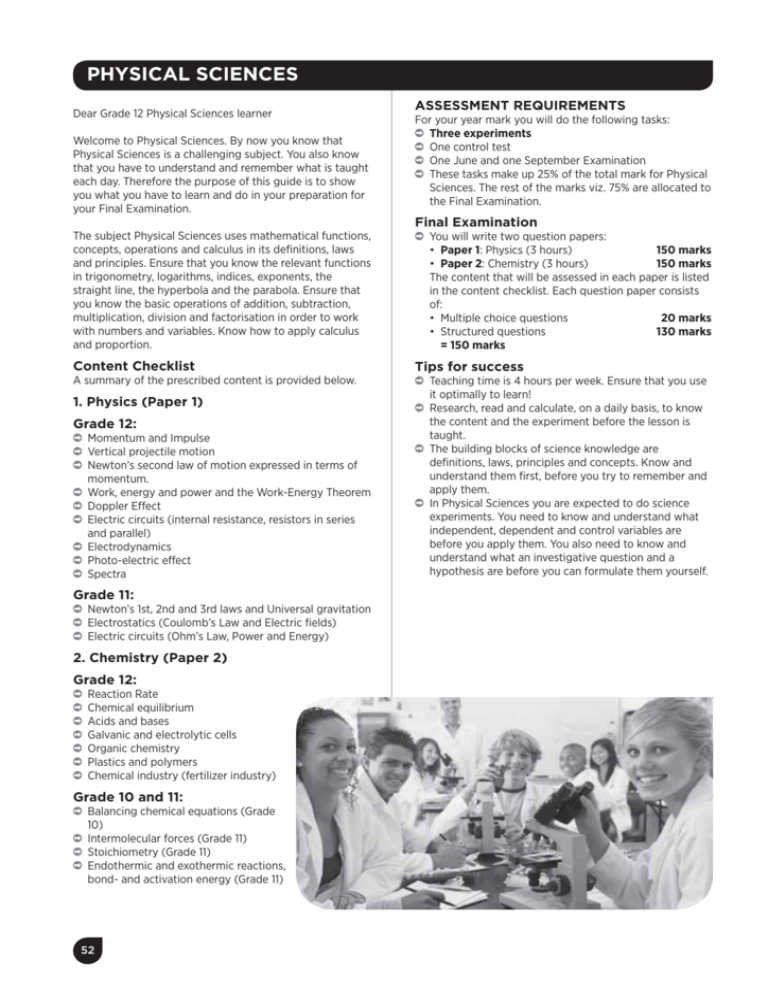
PHYSICAL SCIENCES Dear Grade 12 Physical Sciences learner Welcome to Physical Sciences. By now you know that Physical Sciences is a challenging subject. You also know that you have to understand and remember what is taught each day. Therefore the purpose of this guide is to show you what you have to learn and do in your preparation for your Final Examination. ASSESSMENT REQUIREMENTS For your year mark you will do the following tasks: À Three experiments À One control test À One June and one September Examination À These tasks make up 25% of the total mark for Physical Sciences. The rest of the marks viz. 75% are allocated to the Final Examination. Final Examination The subject Physical Sciences uses mathematical functions, concepts, operations and calculus in its definitions, laws and principles. Ensure that you know the relevant functions in trigonometry, logarithms, indices, exponents, the straight line, the hyperbola and the parabola. Ensure that you know the basic operations of addition, subtraction, multiplication, division and factorisation in order to work with numbers and variables. Know how to apply calculus and proportion. À You will write two question papers: Paper 1: Physics (3 hours) 150 marks Paper 2: Chemistry (3 hours) 150 marks The content that will be assessed in each paper is listed in the content checklist. Each question paper consists of: 20 marks Multiple choice questions Structured questions 130 marks = 150 marks Content Checklist Tips for success A summary of the prescribed content is provided below. À Teaching time is 4 hours per week. Ensure that you use it optimally to learn! À Research, read and calculate, on a daily basis, to know the content and the experiment before the lesson is taught. À The building blocks of science knowledge are definitions, laws, principles and concepts. Know and understand them first, before you try to remember and apply them. À In Physical Sciences you are expected to do science experiments. You need to know and understand what independent, dependent and control variables are before you apply them. You also need to know and understand what an investigative question and a hypothesis are before you can formulate them yourself. 1. Physics (Paper 1) Grade 12: À Momentum and Impulse À Vertical projectile motion À Newton’s second law of motion expressed in terms of momentum. À Work, energy and power and the Work-Energy Theorem À Doppler Effect À Electric circuits (internal resistance, resistors in series and parallel) À Electrodynamics À Photo-electric effect À Spectra Grade 11: À Newton’s 1st, 2nd and 3rd laws and Universal gravitation À Electrostatics (Coulomb’s Law and Electric fields) À Electric circuits (Ohm’s Law, Power and Energy) 2. Chemistry (Paper 2) Grade 12: À À À À À À À Reaction Rate Chemical equilibrium Acids and bases Galvanic and electrolytic cells Organic chemistry Plastics and polymers Chemical industry (fertilizer industry) Grade 10 and 11: À Balancing chemical equations (Grade 10) À Intermolecular forces (Grade 11) À Stoichiometry (Grade 11) À Endothermic and exothermic reactions, bond- and activation energy (Grade 11) 52


